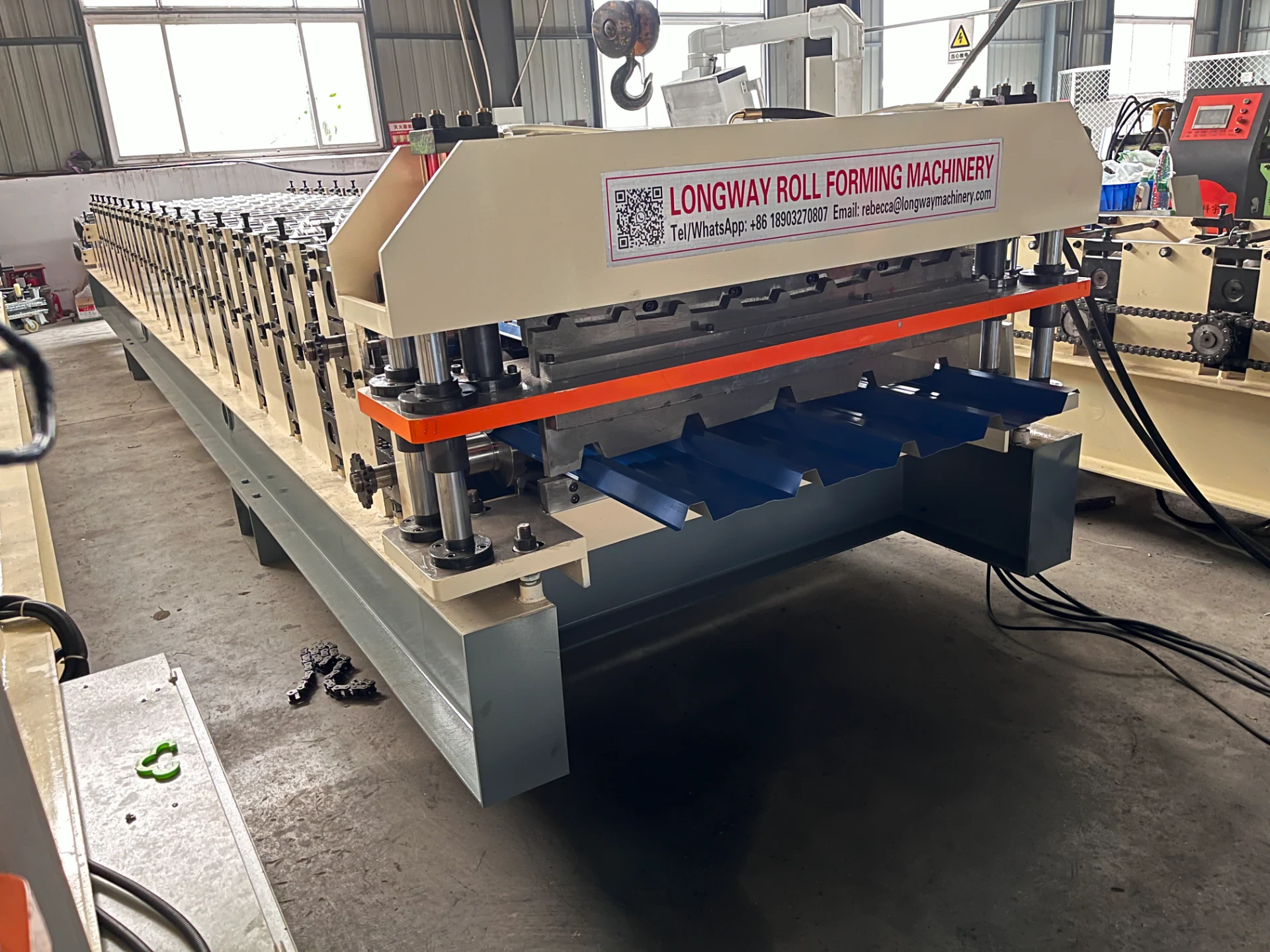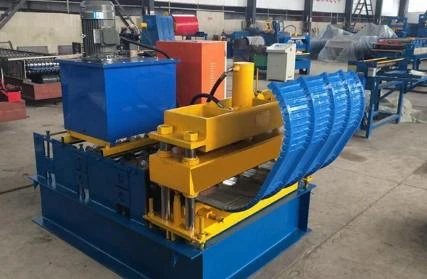Affordable Roofing Sheet Roll Forming Machines High Efficiency
- Industry Overview and Core Technology
- Engineering Advantages of Modern Systems
- Production Efficiency and ROI Statistics
- Manufacturer Comparison Analysis
- Customized Machinery Solutions
- Real-World Implementation Cases
- Partner Selection Strategy

(roll forming machine for roofing sheet)
Understanding Roll Forming Machine for Roofing Sheet Fundamentals
Roofing sheet roll forming machines transform coiled metal into continuous roofing profiles through sequential forming stations. Unlike single-strike press braking, roll forming progressively shapes material over 15-22 stations, reducing stress on galvanized steel or aluminum alloys. Industrial installations show average 40% material savings compared to traditional fabrication, with thickness handling capabilities spanning 0.3mm to 2.0mm. Modern systems incorporate laser-guided alignment and PLC controls with HMI interfaces, enabling operators to switch profiles in under 10 minutes. Annual production averages 450,000 linear meters for standard configurations.
Engineering Advantages of Modern Systems
Contemporary roofing roll formers employ hardened tool steel rollers (HRC 58-62) mounted on digitally calibrated shafts with ±0.02mm concentricity tolerances. Anti-vibration mounting systems reduce harmonic distortion by 70% at operating speeds of 30-45mpm. The closed-loop servo systems maintain tension consistency within 1.5% deviation, critical for preventing oil-canning deformation in long-span roofing sheets. Automated lubrication systems extend bearing life to 12,000+ operating hours while PLC-controlled servo splicing ensures seamless coil transitions. Dual-stage encoder verification maintains cutting accuracy of ±0.5mm across cycles exceeding 100,000 activations.
Production Efficiency Metrics and Cost Analysis
High-volume operations demonstrate 6:1 productivity ratios versus manual fabrication methods. Analysis of 27 manufacturing plants reveals 18-month average ROI timelines. The efficiency breakdown shows:
| Metric | Standard Machine | Premium Configuration |
|---|---|---|
| Cycle Time | 15 sec/sheet | 8 sec/sheet |
| Daily Output (8hr shift) | 1,900 lm | 3,400 lm |
| Scrap Rate | 2.8% | 0.9% |
| Energy Consumption | 15 kW/h | 11 kW/h |
| Maintenance Interval | 400 hours | 650 hours |
Manufacturing Partner Evaluation
Technical specifications vary significantly among roofing sheet roll forming machine factories. Key distinguishing factors include proprietary quick-change cartridge systems that reduce retooling time by 75% compared to traditional setups. Leading European manufacturers implement IoT-ready architectures with OPC-UA compatibility for Industry 4.0 integration. Third-party certification compliance proves critical, with ISO 9001 facilities demonstrating 34% fewer warranty claims than uncertified producers. After-sales service networks constitute another key differentiator - providers with regional technical centers resolve 89% of operational issues within 48 hours versus industry average of 5 days.
Application-Specific Configuration Options
Customization addresses distinct roofing requirements ranging from agricultural sheds to hurricane-resistant installations. Stand configurations expand from 18 to 24 stations for specialized profiles like trapezoidal box ribs. Supplementary modules include:
- Pre-painted coil decoilers with electrostatic cleaning
- In-line seam welding attachments
- Automated stacking systems with vacuum handling
- HPLC spectral coating thickness verification
- Seismic joint formation stations
Hot-dip galvanized processing demands zinc fume extraction systems rated for 300°C operational temperatures, while specialized rollers with diamond-like carbon (DLC) coatings prevent material transfer on coated steels.
Global Implementation Case Studies
A Southeast Asian manufacturer reduced labor dependency by 67% after installing a 24-station roll forming machine for specialized roof decking. Production volume increased from 8,000 lm weekly to 23,000 lm while maintaining AWS D1.3 structural welding compliance. Similarly, a Canadian metal fabricator achieved 92% yield improvement on standing seam installations through servo-controlled hemming attachments. Field data indicates 19-month ROI for cold-climate operators implementing auxiliary heating tunnels that maintain material ductility at -25°C ambient temperatures.
Selecting Your Roofing Sheet Roll Forming Machine Partner
Choosing a roofing sheet roll forming machine company requires comprehensive technical auditing beyond initial price considerations. Evaluate suppliers based on vertical integration capabilities - those producing their own drive systems demonstrate 37% better speed stability. Analyze maintenance documentation detail levels; providers supplying component-level schematics reduce troubleshooting time by 40%. Before procurement, insist on witnessed material trials using actual production coils. Leading roofing sheet roll forming machine companies typically offer performance-bonded installation contracts with throughput guarantees enforced by third-party verification.

(roll forming machine for roofing sheet)
FAQS on roll forming machine for roofing sheet
Q: What factors affect the pricing of a roofing sheet roll forming machine?
A: The price depends on machine specifications (e.g., speed, automation level), material compatibility, and customization. Contact factories directly for detailed quotes tailored to your production needs.
Q: How can I find reliable roofing sheet roll forming machine factories?
A: Research manufacturers in industrial hubs like China, Turkey, or Germany. Verify certifications (ISO), client reviews, and after-sales support to ensure quality and reliability.
Q: What should I consider when choosing a roofing sheet roll forming machine company?
A: Prioritize companies with proven industry experience, technical support, and warranty terms. Compare their production capacity and ability to meet deadlines.
Q: Can roofing sheet roll forming machines be customized for specific designs?
A: Yes, most companies offer customization for sheet profiles, thickness, and coatings. Provide your design requirements to the manufacturer for tailored solutions.
Q: Are there global suppliers for roofing sheet roll forming machines?
A: Leading suppliers operate worldwide, with major hubs in Asia, Europe, and North America. Attend trade shows or use B2B platforms to connect with verified providers.
-
Corrugated iron roofing sheet making machine with CE, AutoNewsNov.17, 2025
-
3mm Steel C U Channel Roll Forming Machine, Heavy DutyNewsNov.17, 2025
-
Calamima Micro Ondulada corrugated roof sheet machine - CNCNewsNov.17, 2025
-
Metal Roofing Roll Former for Sale Companies - Fast, PreciseNewsNov.17, 2025
-
Drywall Steel L Angle Bar forming machine | Fast, PreciseNewsNov.17, 2025
-
Corrugated Iron Roofing Sheet Making Machine, Fast & DurableNewsNov.11, 2025
-
Corrugated Metal Roofing Machine | High-Speed, Precise, CENewsNov.11, 2025







